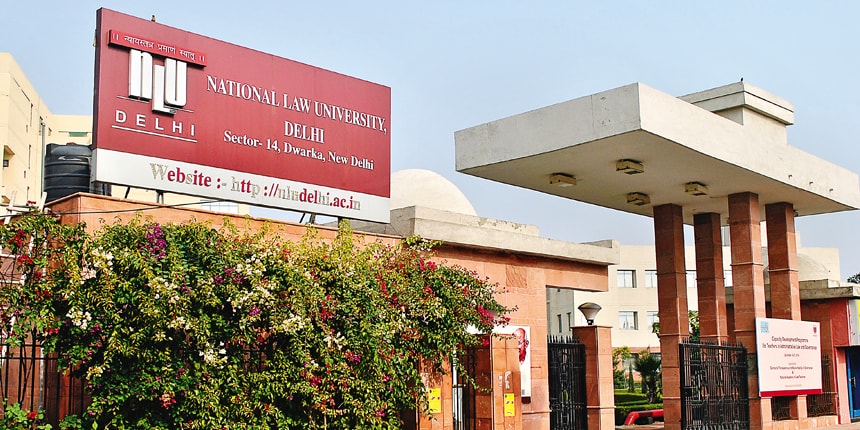What law students, scholars feel about BCI scrapping the one-year LLM
Pritha Roy Choudhury | February 21, 2021 | 11:17 AM IST | 5 mins read
In January, the Bar Council of India issued a notification putting an end to the one-year LLM programme, leaving students and teachers perplexed.

NEW DELHI: The Bar Council of India’s first major action in the new year was to abolish the one-year postgraduate law programme, LLM. On January 2, the BCI issued a new set of regulations which stated that the one-year master’s in law (LLM) will be in operation only till the end of the current academic year.
From 2013, both the one-year and two-year LLM degrees were recognized. Students who emerged with these degrees were eligible to appear for the National Eligibility Test (NET) and start on their doctoral studies.
While the National Law Universities (NLUs) and many private universities followed the one-year LLM programme, most of the states and central universities offered the two-year LLM programme. The first is set to be abolished from the forthcoming academic year. However, the BCI notification has been challenged in the Supreme Court by a student.
Jobs and academics
“Earlier the LLM was supposed to be primarily for academic purposes,” explained Ved Kumari, head, faculty of Law, Delhi University. Once, the LLM programme catered mainly to those who wanted to join academia or undertake research.
.jpg)
But increasingly, LLM programmes have attracted students who need it for advancing their careers. “Across the judiciary, if a candidate has an LLM degree, they get three increments and this is the only reason some students aspire for a one-year LLM degree,” said Kumari. “We are finding it increasingly difficult to teach students in LLM because they want the degrees just for job purposes.”
Apoorva, a fourth-year student of BBA-LLB, in Bennett University, Greater Noida, is a good example of this group. “I want to specialize in corporate and compliance law and I want the one-year programme to continue. That way, I can complete the course in a year,” she said.
Anuj Kumar, who is presently enrolled in the two-year LLM programme at Chaudhary Charan Singh University in Meerut, Uttar Pradesh, believes that both master’s programmes ought to be retained. They can serve different groups of students, he said.
“Those who would like to complete the course and then get a job should be able to complete it in a year,” he explained. “And those who want to be in academics should be able to take the two-year course.” Most central and state universities offer a two-year master’s programme.
Law, BCI and UGC
The BCI announcement has left many in the teaching fraternity puzzled and angry. Legal scholars explained that over a decade ago, the National Knowledge Commission (NKC), a body set up to advise the prime minister on education, had recommended several steps to revamp the education system toward achieving academic and professional excellence. The recommendations were made based on the quality of legal education and research that existed in the country from 2005, when the NKC was established, to 2009, when the final report was submitted. That was a part of the process that led to the one-year degree being cleared by the BCI and University Grants Commission (UGC) in 2013. The UGC is the apex regulatory body for higher education.
“A round table on legal education set up by the ministry of human resource development had asked the UGC to examine the reform of the LLM degree programme. This was done to make it a one-year course like in all developed countries. An expert committee appointed by the UGC in 2010 submitted a report proposing the one-year LLM programme,” recalled Ranbir Singh, former Vice-Chancellor, National Law University, Delhi.
“The idea was that only those institutions which have the infrastructure, dedicated faculty and resources as per the UGC guidelines could offer the one-year programme,” said Manoj Kumar Sinha, director, Indian Law Institute. He added that the conditions for permission were stringent initially but later, the process was diluted. In 2016, the UGC wrote to all institutions to again look at the guidelines.
“What we see is that the NLUs have complied with the guidelines and regulations. And a large number of private schools also jumped in at that opportunity. But till date central and state universities continue to run the two-year LLM programme,” Sinha added. “Many such universities could not come up with the one-year programme as they did not have dedicated faculty mandated in the guideline.”
Singh argued that the BCI is mainly mandated to set standards for the quality of teaching at the bachelor’s degree level only, and under The Advocates Act, it should not have issued that notification. “Under the present circumstances, BCI’s notification cannot over-write the UGC Act. So, it is contrary to the UGC rules and regulations. More importantly, it is also impinging upon the autonomy of a university as it is for universities to determine the nature of the course and its content,” he added.
Global education
Singh says it is because of the one-year LLM that the standards of legal education, teaching and research in the institution could greatly improve. The best of students who did a one-year LLM programme at an Ivy League University in the US or other top-ranking institutions started coming back to India and teach but he fears that if the two-year programme becomes compulsory, then the equivalence of this programme with those of other countries may become an issue. “The live example is the ever-increasing standards of National Law Universities and their teaching standards.” Having only a two-year LLM programme as envisaged in the BCI notification will be a “retrograde step”. The teachers fear it might result in Indian institutions failing to attract the best to teach.

Garima Tewari, professor at Bennett University’s School of Law says that the new regulation contradicts the new National Education Policy 2020. “It [NEP] says we are going to have campuses from universities across the globe in India. How can we have a two-year programme when they are offering the one-year programme world over?” asked Tewari who possesses a one-year LLM degree from an Italian university.
Ved Kumari, however, disagreed. “The rigour with which law is pursued there is not matched here, neither in LLB nor in LLM. To ape the Americans without actually having the rigorous LLB or LLM programme is not done.”
It may be mentioned that nowhere in the world is LLM a two-year programme except in India, Singh added.
Write to us at news@careers.360.com.
Follow us for the latest education news on colleges and universities, admission, courses, exams, research, education policies, study abroad and more..
To get in touch, write to us at news@careers360.com.